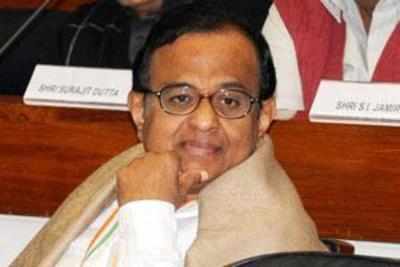- News
- India News
- Quiz Chidambaram in Air India deal, say BJP members
Trending
This story is from April 9, 2016
Quiz Chidambaram in Air India deal, say BJP members
The sudden and large escalation in the number of aircraft and their type, Dubey said, had caused a financial mess and the airline struggled to meet its commitments in other aspects of its operations.

Former finance minister P Chidambaram.
NEW DELHI: BJP members of the Public Accounts Committee of Parliament have demanded that former finance minister P Chidambaram be called as a witness before the panel with regard to a change in the terms of aircraft acquisition for Air India within a period of four months in 2004 that allegedly buried the national carrier under debt.
Raising the issue at Friday's meeting of the PAC, BJP MP Nishikant Dubey is understood to have argued that terms such as cash concession and escalation were tweaked while the number of aircraft to be acquired from Boeing went up from 33 to 68 while the types of aircraft were also altered.
There were sharp differences between the decisions of the empowered group of ministers set up on August 26, 2005 and the second on December 20, 2005 with the additional cash concession going up from $25.9 million to $42.7 million. The escalation changed from 3% in January 2004 on yearly basis to 3.25% from July 2005, while the trade and off-set was retained at 30%.
The sudden and large escalation in the number of aircraft and their type, Dubey said, had caused a financial mess and the airline struggled to meet its commitments in other aspects of its operations.
Though PAC chair K V Thomas did not pronounce on the demand, the committee has decided to seek fresh responses from the civil aviation ministry with regard to issues pertaining to the decisions of the two EGoMs.
The panel is also learnt to have discussed the implications of the Jet-Etihad tie-up and release of seats allotted to the Indian airline. Some quarters had felt the liberal and exclusive bilaterals given to Etihad reflected poorly on the then government.
The then government had justified clearing the Jet-Etihad deal on the ground that it had helped the Indian private operator survive. Others felt the implications would adversely affect India's attempt to develop Delhi as a major hub.
Raising the issue at Friday's meeting of the PAC, BJP MP Nishikant Dubey is understood to have argued that terms such as cash concession and escalation were tweaked while the number of aircraft to be acquired from Boeing went up from 33 to 68 while the types of aircraft were also altered.
There were sharp differences between the decisions of the empowered group of ministers set up on August 26, 2005 and the second on December 20, 2005 with the additional cash concession going up from $25.9 million to $42.7 million. The escalation changed from 3% in January 2004 on yearly basis to 3.25% from July 2005, while the trade and off-set was retained at 30%.
The sudden and large escalation in the number of aircraft and their type, Dubey said, had caused a financial mess and the airline struggled to meet its commitments in other aspects of its operations.
While some Congress members felt that Cabinet decisions should remain sacrosanct, BJP MPs like Dushyant Singh and Kirit Somaiya supported Dubey and demanded that Chidambaram be examined by the committee.
Though PAC chair K V Thomas did not pronounce on the demand, the committee has decided to seek fresh responses from the civil aviation ministry with regard to issues pertaining to the decisions of the two EGoMs.
The panel is also learnt to have discussed the implications of the Jet-Etihad tie-up and release of seats allotted to the Indian airline. Some quarters had felt the liberal and exclusive bilaterals given to Etihad reflected poorly on the then government.
The then government had justified clearing the Jet-Etihad deal on the ground that it had helped the Indian private operator survive. Others felt the implications would adversely affect India's attempt to develop Delhi as a major hub.
End of Article
FOLLOW US ON SOCIAL MEDIA










